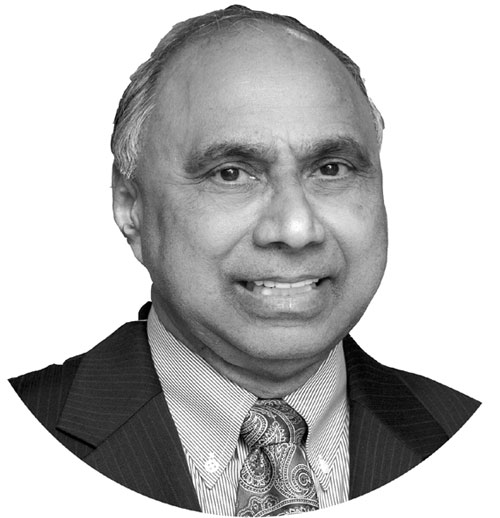Repudiating Trumpism: Nominations of Muslims
ON 30 July, President Joe Biden named Muslim American Rashad Hussain as America’s next Ambassador-at-Large for International Religious Freedom.
If confirmed by the US Senate, Hussain will become the sixth person to serve in that position.
As Ambassador-at-Large, the 41-year-old Attorney will also head the Department of State’s Office of International Religious Freedom and serve as a non-voting member of the United States Commission on International Religious Freedom (USCIRF).
The positions of Ambassador-at-Large and USCIRF are relatively new. They were created roughly 22 years ago by the US Congress through the International Religious Freedom Act of 1998 in response to rising religious intolerance worldwide.
As the head of the Office of International Religious Freedom, Hussain will have a substantial influence and impact in shaping U.S. policy on religious freedom around the world.
Hussain is the first Muslim American to be nominated to become ambassador-at-large for religious freedom.
But it is another part of his identity that has garnered more attention in Washington and worldwide. As the White House noted, Hussain is the first Muslim to be nominated for this position
Why is that important? For a number of reasons: First, the significance of a Muslim American holding the job of the country’s top envoy for religious freedom, just five years after then-candidate Donald Trump announced his infamous Muslim ban, cannot be overstated.
President Joe Biden came to office vowing to turn the page on four years of Trumpism, which was marked by a series of discriminatory policies against Muslims and other minority groups.
Biden did that from the moment he was sworn in as the commander-in-chief, not just by reversing many of the Trump administration policies, but also by reaching out to those groups that were targeted by Trump and naming some of their members to key administration positions.
Second, by picking Hussain — a devout Muslim, who has memorized the Quran — Biden sends a powerful signal to the world.
Many countries around the world are intolerant of faiths than their own. As someone, who has personally known Hussain for several years, I can vouch that he will be a great messenger for America on the importance of religious tolerance.
One of the first groups to welcome the Hussain nomination was the influential American Jewish Committee (AJC). “Rashad Hussain is an impressive advocate of freedom of religion or belief in challenging diplomatic contexts,” said David Harris, CEO of AJC.
“He is an ally in the global fight against anti-semitism, including in his extensive engagement with the Muslim world, and an experienced advocate for building stronger Muslim-Jewish relations.”
Finally, in spite of the symbolism around his nomination, Hussain is not a symbolic candidate. His resume is stellar and reveals that he is ideally suited for this position.
In addition to Hussain, on July 3, the White House announced three other nominees and appointees to the State Department and the U.S. Commission on International Religious Freedom.
Reputed Emory University Professor and Holocaust scholar Deborah Lipstadt was nominated as “Special Envoy to Monitor and Combat Anti-Semitism”.
And, Sharon Kleinbaum, spiritual leader of the Beit Simchat Torah congregation, and Muslim Pakistani American Khizr Khan were appointed as commissioners of the USCIRF. Khan’s nomination to the USCIRF is also significant.
He is a Gold Star parent, father of the late U.S. Army Captain Humayun Khan, who died while serving in Iraq. Khan has been a prominent critic of Trump’s anti-immigrant and anti-minority policies.
In 2016, he was a prominent speaker at the Democratic National Convention, where he told Trump, then nominee for President, “Have you ever been to Arlington Cemetery? Go look at the graves of brave patriots who died defending the United States of America. You will see all faiths, genders, and ethnicities.
You have sacrificed nothing—and no one.” The selection of Hussain and Khan are, at once, a repudiation of Trumpism and an affirmation of American values.
As the White House pointed out in its press release when it made its appointments “Today’s announcement underscores the President’s commitment to build an Administration that looks like America and reflects people of all faiths.” The White House announcement and these appointments do much more
They send a powerful message around the globe that the United States of America has rejoined the world stage as an exemplar of and advocate for religious freedom internationally.
—The writer is an Entrepreneur, Civic Leader, and Thought Leader based in Washington DC.










